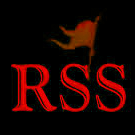The bonds that bind Congress with RSS

Saeed Naqvi is a former newspaper editor and a widely travelled Indian political analyst and commentator on diplomatic affairs (Caravan)
Members of Rashtriya Swayamsevak Sangh take part in a physical and martial drill with sticks.
There has always been a symbiotic relationship between India’s oldest political party and the Hindutva organization linked to Gandhi’s assassins
By Saeed Naqvi
By triggering a debate on its Op-ed page last week, “The Hindu”, possibly unintentionally, lifted the scab from an old wound for many of us. The debate, initiated by Vidya Subramaniam’s column (October 8), had its locus elsewhere: the Rashtriya Swayamsewak Sangh’s (RSS) growing stranglehold on the Bharatiya Janata Party. Her point was that the RSS’s relationship with the BJP violates a commitment the RSS made to India’s first home minister, Sardar Patel, before it was unbanned on July 11, 1949.
Remember, the RSS had been banned four days after Mahatma Gandhi’s assassination on Jan 30, 1948. But S. Gurumurthy of the RSS, in the course of establishing his rebuttal, wanders into the attitudes of senior Congress leaders towards the RSS. The Congress Working Committee, as is well known, was divided on this issue as it was on the country’s partition. The Congress has historically fudged these issues.
Gurumurthy clinches the fact that the RSS violated no agreement, by quoting then Home Minister of Bombay, Morarji Desai, a Patel acolyte. In a written statement to the Bombay Legislative Assembly Sep 14, 1949, Desai admitted that the ban on the RSS was lifted “unconditionally”.
When, returning from Muzaffarnagar after last month’s orchestrated, piecemeal ethnic cleansing, I heard exactly the same anti-Muslim slogans I had heard during the Gujarat riots in 1969, it did hurt. On that occasion Badshah Khan, the Frontier Gandhi, put down anchor in that city for nearly a month because he could not believe what he saw — 512 people killed in what Justice Jaganmohan Reddy called “largely one-sided riots”. Handbills calling for a “religious war” were distributed “to the rioters by the RSS and the Jana Sangh”. Congressmen joined the chorus that “Muslims were anti-national”. Yes, in 1969.
I had a ringside seat with Badshah Khan that year. “The Statesman” had loaned my services to function as the Frontier Gandhi’s press adviser. This was at Jayaprakash Narayan’s behest. Since Indira Gandhi had split the Congress, Badshah Khan’s utterances were being carefully weighed by both sides. Was he favoring Indira Congress or the Syndicate Congress?
The issue of which way Badshah Khan would tilt was settled by the horrible communal situation in Ahmedabad. He was pained at Chief Minister Hitendra Desai’s alleged communal bias during the riots. And he saw the chief minister, a political descendent of the Patel line. At this stage Badshah Khan had more or less accepted Ram Manohar Lohia’s list of the Guilty Men of India’s Partition.
These “Guilty Men” were, in his book, not terribly averse to association with the RSS as Gurumurthy makes quite clear.
Gurumurthy quotes Patel’s speech in Lucknow in which he chastises his “powerful” colleagues in the Congress who wished to “crush” the “patriotic RSS”.
The “powerful” Congressmen being referred to must be those led by Jawaharlal Nehru. Did this galaxy include Maulana Azad, president of the Congress from 1939 to 46? I doubt it. His prestige has since taken such a beating by sheer neglect that historian Ram Chandra Guha does not even mention him among Makers of Modern India. He considers Hamid Dalwai more worthy of mention.
The Maulana was “powerful” so long the real wielders of power in the Congress allowed him to. Nehru, for instance. But once they had made up their minds that they were full square behind the AICC resolution of June 14, 1947 endorsing India’s partition, Maulana Azad was an obstacle. There could have been no more weak and isolated leaders as Maulana Azad and Badshah Khan.
When Patel suggested to RSS leader Golwalkar that the RSS should join the Congress, the RSS supremo was quick with his response. The two should work separately and “converge”. When, pray, would they “converge”? When Hindu Rashtra has been achieved?
The first Home Secretary of Uttar Pradesh, Rajeshwar Dayal, has in his autobiography, “A Life of Our Times”, this story about Golwalkar and Congress stalwart, Govind Ballabh Pant, UP’s longest serving Chief Minister and Union Home Minister from 1955 to 1961.
When communal tension in UP was high, Dayal carried incontrovertible evidence to Pant about Golwalkar’s plans to create a “communal holocaust in western UP”. Pant was convinced of the plot but he would not permit them to arrest the RSS chief. In fact Golwalkar was allowed to escape, having been duly tipped off.
“Came January 30, 1948 when Gandhi, the Supreme Apostle of Peace, fell to a bullet fired by an RSS fanatic.” Dayal concludes: “The tragic episode left me sick at heart”.
http://caravandaily.com/portal/the-bonds-that-bind-congress-with-rss/





